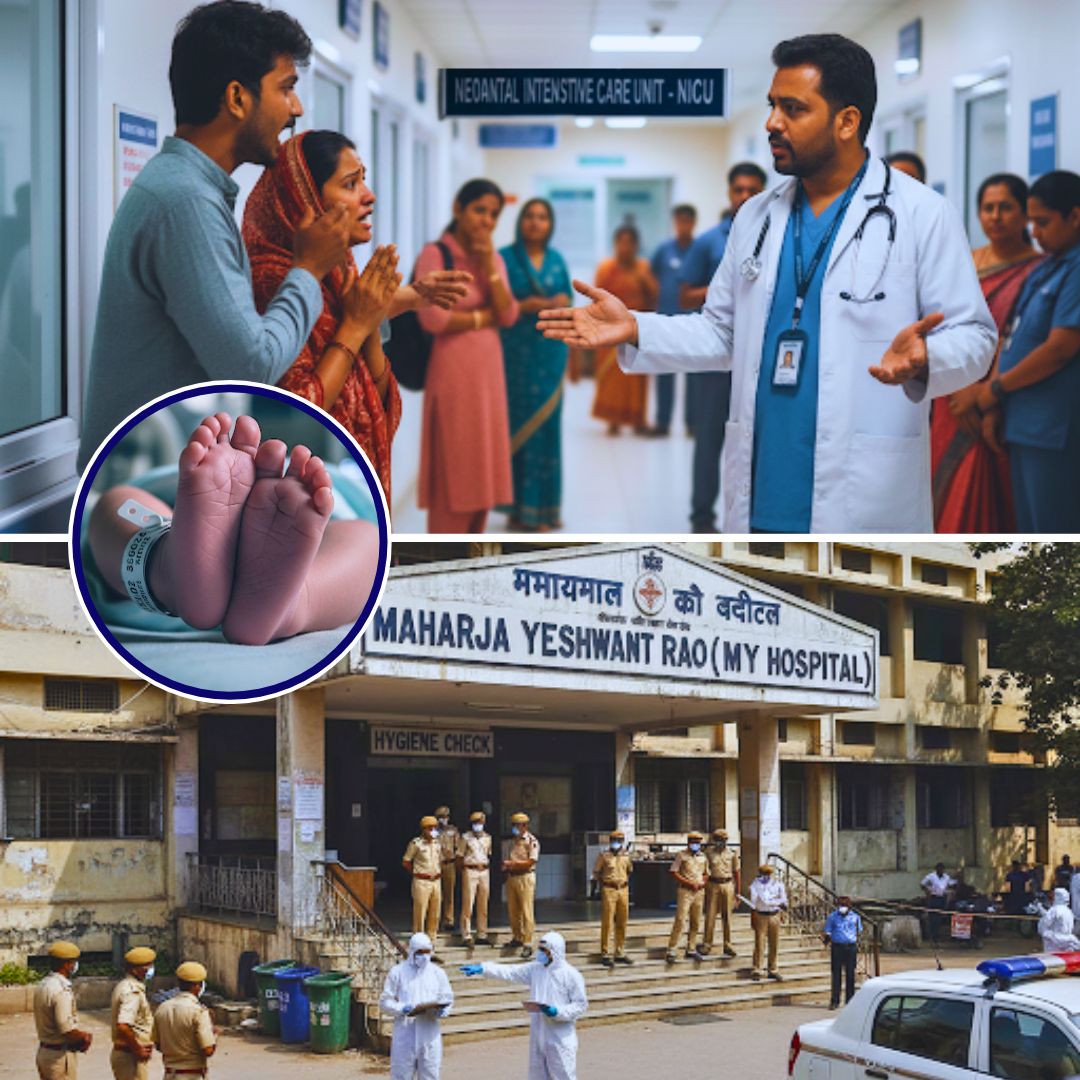A second newborn bitten by rats at Indore’s Maharaja Yeshwant Rao (MY) Hospital has died, officials confirmed on September 3, 2025. Both infants, already suffering from severe congenital complications, sustained minor rat bites in the hospital’s neonatal intensive care unit (NICU) and later died of septicemia and other ailments.
Hospital authorities insist the bites were not the primary cause of death, but the incidents have triggered public outrage, disciplinary action, and a sweeping investigation into hospital hygiene and patient safety protocols.
Tragedy Exposes Critical Lapses
The first baby, a girl from Khandwa, died on Tuesday morning, followed by a second baby, also a girl, who succumbed to infection and organ failure on Wednesday afternoon. Both children were born underweight-with one at only 1 kg-and presented with congenital anaemia and other anomalies upon admission. “She developed septicemia and her condition became critical. Despite our best efforts, she passed away this afternoon.
The rat bite caused just a minor abrasion,” explained Dr Jitendra Verma, Deputy Superintendent of MY Hospital. Authorities reported that the rat bites resulted in minor finger wounds, not life-threatening injuries, and in both cases, parents or guardians declined post-mortem examinations, acknowledging the infants’ pre-existing conditions.
Swift Action and Official Scrutiny
The deaths have ignited harsh criticism of the state’s largest public hospital and prompted immediate administrative reforms. Hospital administrators suspended two nursing officers, removed the nursing superintendent, and issued a show-cause notice to the head of the paediatrics department. The pest control contractor received a ₹1 lakh fine, and further pest control measures have been mandated daily within the hospital.
Chief Minister Dr Mohan Yadav assured the public of “zero tolerance” for negligence, ordering the formation of a high-level inquiry committee, while the Madhya Pradesh State Human Rights Commission has demanded a detailed report from hospital management. “Usually, if pest control is done on time, rats would not be present. However, it is clear that pest control was not done,” stated Health Minister Rajendra Shukla. Staff have now been instructed to immediately report rodent sightings, and pest management has become an urgent daily priority.
Systemic Issues and Ongoing Questions
Behind these tragedies lie broader systemic problems: MY Hospital has long been criticised for overcrowding, inadequate sanitation, and outdated infrastructure. Despite sporadic pest sightings and complaints from the staff, robust preventive action was deferred, exposing vulnerable infants to hazardous conditions.
The first victim was reportedly abandoned by her parents, who remain untraceable; the second’s family refused further legal steps after her passing. The inquiry committee has one week to submit findings, and wider questions about hospital governance, transparency, and equitable healthcare provision have resurfaced..
The Logical Indian’s Perspective
These deaths go beyond individual loss-they symbolise systemic neglect in public healthcare. While congenital illness contributed, hospitals must ensure the highest standards of safety and hygiene for their most vulnerable patients.
No parent should fear for a child’s life due to basic facility lapses. Accountability must be matched with compassion and commitment to reform, from state leaders to hospital corridors.
https://www.instagram.com/reel/DOGVZyuEi6u/?utm_source=ig_web_button_share_sheet













